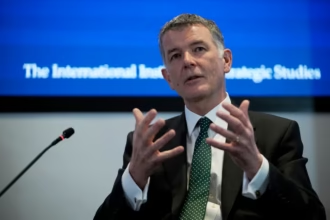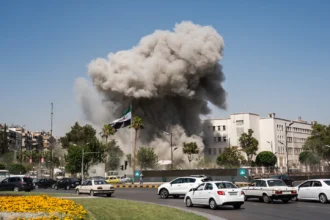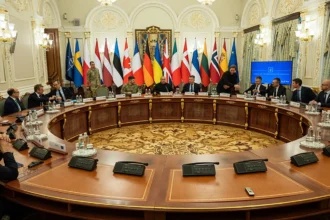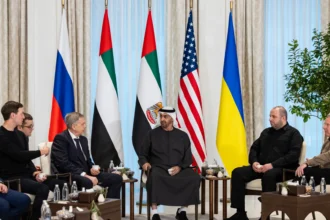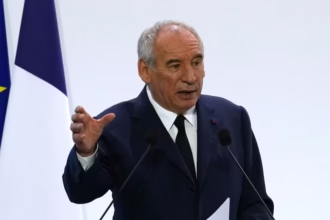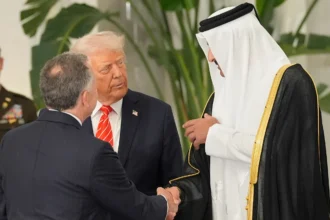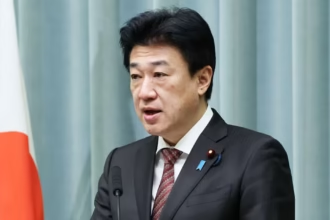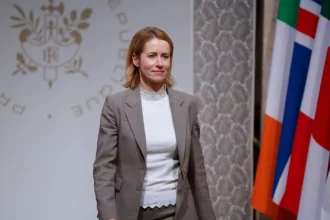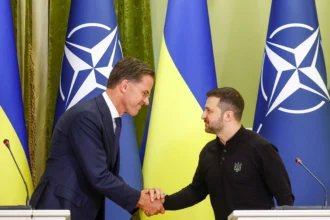Ukrainian President Volodymyr Zelenskyy has accused Russia of deliberately choosing military escalation over meaningful negotiations, highlighting a shift toward ballistic strikes and long-range attacks that threaten both civilian and strategic targets. The statement comes amid intensifying conflict in eastern and southern Ukraine, with Kyiv warning that Moscow is showing little interest in diplomatic resolutions.
Escalation Through Ballistic Missiles
In recent weeks, Ukrainian authorities reported a surge in ballistic missile attacks across multiple regions, targeting infrastructure, military positions, and urban centers. Zelenskyy condemned the strikes as “evidence that Russia has abandoned dialogue and opted for destruction.”
According to Ukrainian defense officials, the attacks demonstrate a focus on strategic bombardment rather than tactical engagements, suggesting that Moscow is prioritizing intimidation and disruption over potential peace talks.
“The frequency and scale of these missile strikes indicate a calculated strategy,” Zelenskyy said during a televised address. “Russia is doubling down on violence while ignoring the path of diplomacy that could save lives and rebuild trust.”
Civilian Toll and Infrastructure Damage
The renewed missile campaign has had devastating consequences for Ukraine’s civilian population. Hospitals, schools, power grids, and residential areas have been affected, prompting widespread concern from international observers. Humanitarian organizations report disruptions to electricity, water, and transport, compounding the ongoing challenges of a protracted conflict.
“This is not just a military tactic—it is an attack on the very fabric of civilian life,” Zelenskyy said. “We are calling on the international community to recognize the full scale of these attacks and respond accordingly.”
Diplomatic Stalemate
Efforts by European nations and the United States to mediate a ceasefire have so far yielded limited results. While Moscow and Kyiv previously engaged in intermittent talks, Zelenskyy now describes these diplomatic channels as largely symbolic.
“Russia is choosing the trajectory of missiles rather than the trajectory of talks,” he said. “Until this changes, the world must prepare for continued escalation.”
Analysts note that the emphasis on ballistic strikes serves multiple purposes for Moscow: demonstrating military capability, projecting power to regional actors, and testing Ukraine’s defensive systems. At the same time, the attacks risk deepening international isolation and inviting stronger economic and military support for Ukraine from Western allies.
International Response
Western nations have condemned the recent missile strikes, with NATO officials calling for increased support to Ukraine’s air defense systems. The United States has expedited shipments of Patriot missile batteries and advanced drones, while European partners have pledged financial and logistical assistance.
“The choice to pursue ballistic strikes over dialogue undermines any prospect of peace,” a senior EU diplomat said. “It is imperative that we continue supporting Ukraine’s defense capabilities while keeping channels open for negotiation, however limited they may currently be.”
Strategic Implications
Ukraine’s military analysts emphasize that the focus on long-range strikes could alter battlefield dynamics, forcing Kyiv to reallocate resources to missile defense and counter-artillery operations. The conflict could increasingly resemble a war of attrition, with civilian centers bearing the brunt of escalation.
“The trajectory Russia has chosen may prolong the conflict and raise the stakes for everyone in the region,” noted a defense expert based in Kyiv. “It is a stark reminder that diplomacy is fragile when confronted with aggressive military strategies.”
Zelenskyy’s Call to the World
In his address, Zelenskyy urged international partners to redouble efforts to pressure Russia into negotiations, emphasizing that continued missile attacks threaten not only Ukraine but also broader European stability.
“Peace is possible, but only if Russia returns to the negotiating table,” he said. “Every day that they choose destruction over dialogue costs lives, infrastructure, and hope for the future.”
Conclusion
The recent missile strikes underscore a grim reality for Ukraine: Russia appears to favor military escalation over diplomacy, challenging both Kyiv and the international community to respond effectively. As the conflict continues, the world watches to see whether ballistic assaults will define the next phase of the war—or whether renewed dialogue can still avert further devastation.



